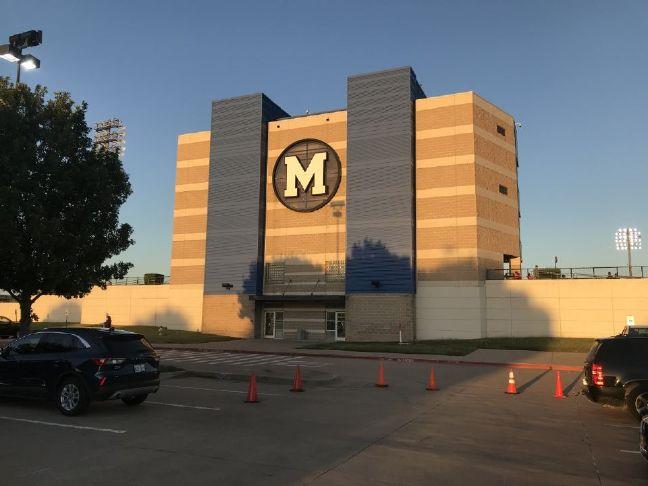With school days just around the corner and a November election date looming, the Midlothian ISD board of trustees Monday night took on a number of important topics in preparation for both.
The board approved a new cell phone policy to comply with new state legislation, updated the 2025-2026 budget to amend the school’s staff compensation plan, and opted out of a new state law allowing non-enrolled students to participate in University Interscholastic League activities, including athletics.
The biggest topic of the night, however, was teed up for a vote at the board’s next meeting in August.
With overwhelming trustee support, the district Facilities Planning Committee revealed its finding of needs for the district. The bottom line: The committee’s recommendation was the placement of a $383 million bond referendum on the November ballot.
“I appreciate you … giving us the stuff that we need, versus stuff that we want,” MISD board vice president Gary Vineyard told the committee. “I feel real good that at the number we have, we’ll be fine and we’ll have the support.”
Former Midlothian Mayor Richard Reno, the chairman of the committee, and other members of the committee informed trustees of what recommendations they came up with. Reno touted the community’s involvement.
“A craftsman is known by their tools,” Reno said. “Our teachers and staff need the tools to do their job.”
The committee came up with a total of 12 recommendations, in general including one new elementary school, a new CTE center to replace the district’s MILE career campus, renovations to Midlothian High School and Frank Seale Middle School, capital improvements to existing campuses, technology upgrades, transportation facility expansion and buses.
The new elementary would be the ninth in MISD to open in the fall of 2028 and would be placed in the new Goodland development on MISD-owned land, giving relief to rapidly-growing J.A. Vitovsky Elementary.
After a number of facility tours in June, the committee had quickly come to the conclusion that a major expansion of the district’s career and technical education (CTE) program is needed, The CTE program is headquartered at the MILE, which was opened just a few years ago and has already been outgrown as CTE enrollment has grown by 58 percent just since 2023-2024.
Other needs include additional elementary schools and an expansion of the LEAP alternative education program.
MISD has future capacity for bond issues anywhere between $421 and $474 million with no change to the current interest and sinking tax rate, but the committee is conservatively recommending a voter referendum under $400 million, committee member Jennifer Knight told the board. Knight noted that the district will need to move fast with construction prices spiking.
A final decision on placing a bond issue and an unrelated voter-approved tax rate election on the ballot won’t be made until Monday, Aug. 18, which is coincidentally both the date of the next MISD school board meeting and the deadline for placement of referenda on the Tuesday, Nov. 4 ballot.
Much of what the committee presented was backed up by district demographer Brent Alexander, who presented a quarterly update on MISD growth.
According to Alexander, a massive 9,186 lots are set for development in the Vitovsky attendance zone, with another nearly 1,400 in the Longbranch zone and almost 700 in the T.E. Baxter Elementary zone. However, overall development has steadied out at about 1,000 homes per year district-wide but could accelerate if interest rates drop, Alexander noted.
An MISD demographic report from the fourth quarter of 2024 stated that MISD ranked No. 18 across the entire Dallas-Fort Worth market in total annual new home closings, outpacing the neighboring Waxahachie and Mansfield districts.
In other matters, the board voted to opt out of allowing non-MISD students to participate in UIL activities at the recommendation of MISD human capital officer Dr. Aaron Williams, who told trustees there were a number of issues that would need to be navigated, including discipline and attendance. The vote was 6-1, with trustee Ed Harrison voting against.
Williams also presented a budget update that reflects additional funds for teacher retention provided by the 89th Texas Legislature this year. Starting pay for first-year teachers will be $60,000, a number that Williams said is in line with the area market average.
The new law separates classroom teachers from administrative and professional staff (such as librarians), but Williams said these employees will receive a general 3-percent pay increase. Stipends were also increased for self-contained special education, theatre and ag teachers.



